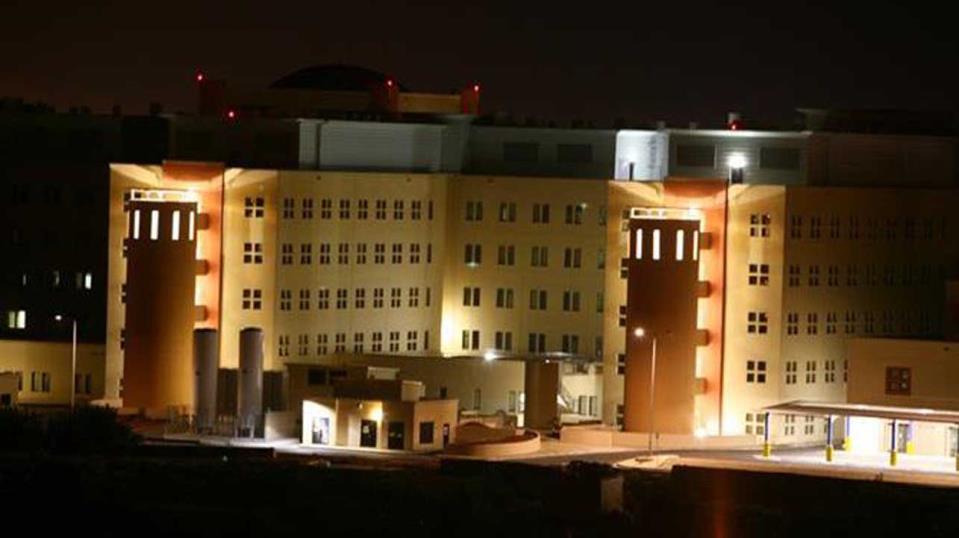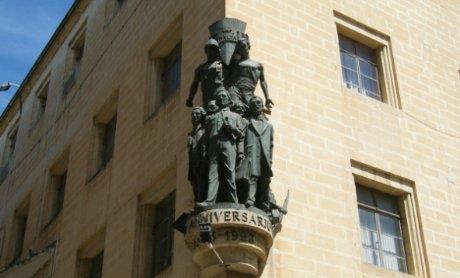Mater Dei Hospital’s management has formally apologised to three employees after threats of “serious disciplinary actions for insubordination” raised the alarm at The Voice of the Workers’ (UHM) Health Sector.
The sudden inexplicable transfer of three phlebotomists from the Pathology Department at the Sir Antony Mamo Oncology Centre (SAMOC) to Mater Dei Hospital (MDH), allegedly to make way for people close to the government clique, led to a union directive for the employees to stay put.
Employment Relations Assistant Manager of the Union, Ian Mark Zammit, who is also responsible for the Health Sector, spoke to The Malta Independent in detail about the case after he said he has had enough of what can be referred to as institutionalised playground bullying.
“As a representative of the health sector, I was contacted by three people who told me that they were suddenly transferred from SAMOC to MDH,” Mr Zammit said. “The fact that they were suddenly moved is already going against their rights since they never actually received anything in writing.” The three employees hadn’t actually received anything in writing about a transfer, and were merely told to move.

Initial correspondence between the Union and the management led to what Mr Zammit described as a series of excuses such as, “They were bothering other people,” or “They were slow in their work.” The final decided reason which the management has now seemingly stuck to is that it is a routine rotation. Mr Zammit pointed out that, naturally, if they were doing anything wrong then they would have first gotten some form of warning rather than simply being told that they needed to move to a separate building entirely the next day.
As a form of industrial action, the UHM then instructed the three phlebotomists to stay put. The management’s reaction was unconstitutional and illegal, according to Mr Zammit, especially when taking into consideration the direct threats in letters to the employees themselves, as well as to Mr Zammit.
The letter to the employees reads as follows:
“I would like to bring to your attention that your relocation from SAMOC phlebotomy unit to MDH was a managerial decision involving rotations of staff and the duties assigned to you form part of your job description. Consequently, MDH and Pathology management does not accept UHM’s position on this subject so the directives given on your behalf are not being accepted.

“You are therefore advised to return to you (sic) assigned duties with immediate effect. Failure to do this (sic) you will be liable to face serious disciplinary actions for insubordination and abandonment of your responsibility for patient care.”
Signing off with “kind regards” is Teddie Attard, who is in charge of the phlebotomists and includes the signatures of Dr Christopher Barbara and Mr Charles Borg who are respectively the Chairman and Professional Lead MLS of the Pathology Department.
In the email sent to the Union from the Health Ministry, Mr Zammit was told that after the allegations of abuse were investigated, “It was established that the move of these phlebotomists is part of the normal rotation exercise that management implements from time to time.” It was also said that the exercise is taken to “deliver better care outcomes for our patients and users.”
The Ministry also said that it is their opinion that the transfer would lead to “no changes to their working conditions” as they are being assigned duties according to their job description. In reaction to the directives to stay put, the email went on to say that they are “irregular and can pose a threat to patients’ wellbeing”.

This email also ended in the same warning as the letter from the Pathology Department: “These phlebotomists are expected to follow work assignments and management directions in line with their contractual obligations with immediate effect. Failure to do so will leave management with no other option except to take all necessary actions required.”
Mr Zammit told this newsroom that the three staff members also alleged that the reason why the General Workers’ Union remained silent, despite the fact that the phlebotomists fall under their ‘protection’, is that at least one of the clique members is actually a GWU representative. When the issue was brought to the attention of the GWU, it was passed off as a routine matter and the entire issue was sidelined and for the ‘rotation’ premise to be used as an excuse, Mr Zammit said.
Another allegation made by the employees is that one of the replacement staff is related to a minister’s driver, thus proving their ‘friends in high places’ theory. Mr Zammit said that he doesn’t care who the people are or where their political allegiances lie, as long as the workers receive just treatment.
This newsroom sent detailed questions to the ministry directly quoting the correspondence between them and the Union, asking how the rotation could be considered routine if it has actually never been done before.
Regarding the idea that it is being done to “deliver better care outcomes”, this newspaper was told that patients and consultants alike were all disappointed and confused after being left wondering why the three phlebotomists of a certain calibre were being moved to suddenly. The question was for the Ministry to explain how the rotation would be delivering better care if patients have grown used to working with these staff members.
The third question regarded the claim that there would be “no changes to their working conditions” which Mr Zammit pointed out is ludicrous considering they would be place in an entirely new environment. This newspaper asked how the claim could be justified, especially since the sudden unwarranted change borders on precarious.
Finally this newsroom asked the ministry to explain the threats but the two-sentence reply neglected to remotely mention them. The full reply from the Mater Dei CEO, who was forwarded the email reads:
“Movement of staff from one area to another across hospital is standard procedure and happens in line with the exigencies of the service. In this case there were no changes to working conditions, in fact the employees in question kept same work legends and duties.”
Questions sent out to the GWU regarding the allegations made by the three transferred phlebotomists and propagated by The Voice of the Workers (UHM) brought forth clarification and a different side to the story, however.

GWU Section Secretary Jeremy James Camilleri corroborated what the ministry provided as an explanation saying that “staff movements are a management prerogative as long as this decision is taken according to operational exigencies.” That being said, the union added that, “The GWU insists that we are given a just and valid reason that this is indeed being carried out due to operational necessities.”
About this case in particular, Mr Camilleri said that, “When the GWU was informed and it had set a meeting with management to ensure that the staff movements were indeed issues for operational exigencies.”
It has transpired that the GWU informed the three phlebotomists that they will no longer be representing them in any way because, according to Mr Camilleri, they were informed that “the employees involved were following another union’s directive and as such, the GWU has no other option other than to withdraw its representation of the case, in respect of the complainant’s wishes and to avoid confusion that might be detrimental to the employee’s case.”
This goes against what the UHM’s Mr Zammit said when he told this newsroom that the phlebotomists denied that there ever was a meeting with the GWU to the point where the representatives even ignored their calls before they went to the UHM. They were in fact terrified of going to Mr Zammit considering they didn’t know what the repercussions could be for going against the GWU.
In terms of allegations of GWU influences leading to the transfers, Mr Camilleri answered that “the GWU has absolutely no influence over staff assignment unless a complaint has been issues or unless a mass migration is planned and as such”. While stressing that the GWU had never requested or partook in any staff movement of a union official, it points out that this could have had absolutely no bearing on any decision taken.
Up to now, although there has been an apology a solution has not yet been found.